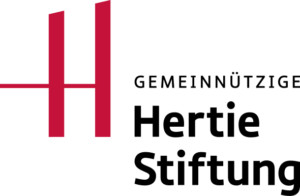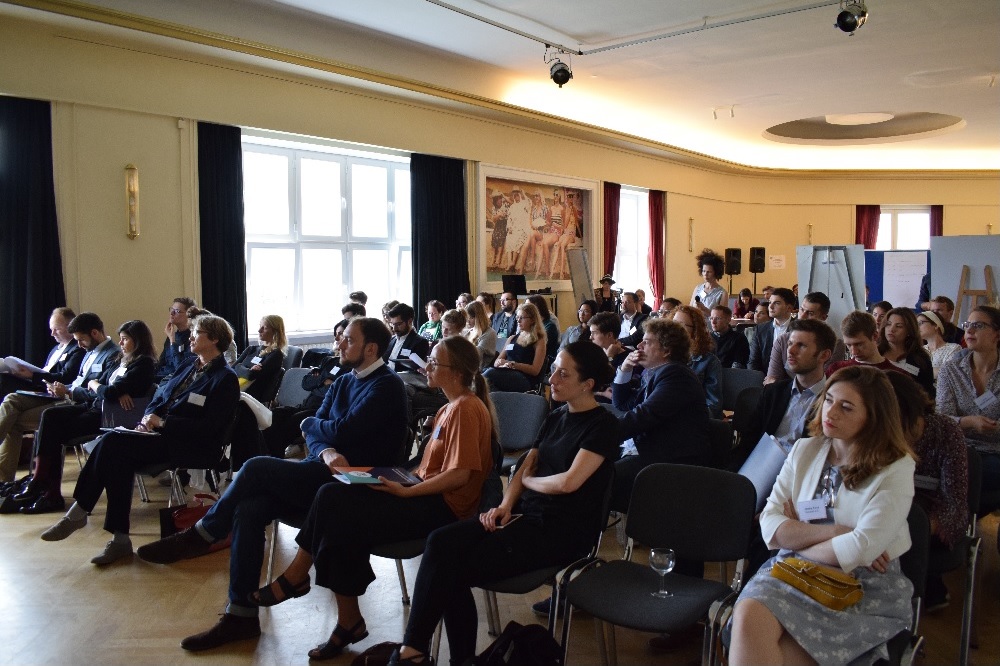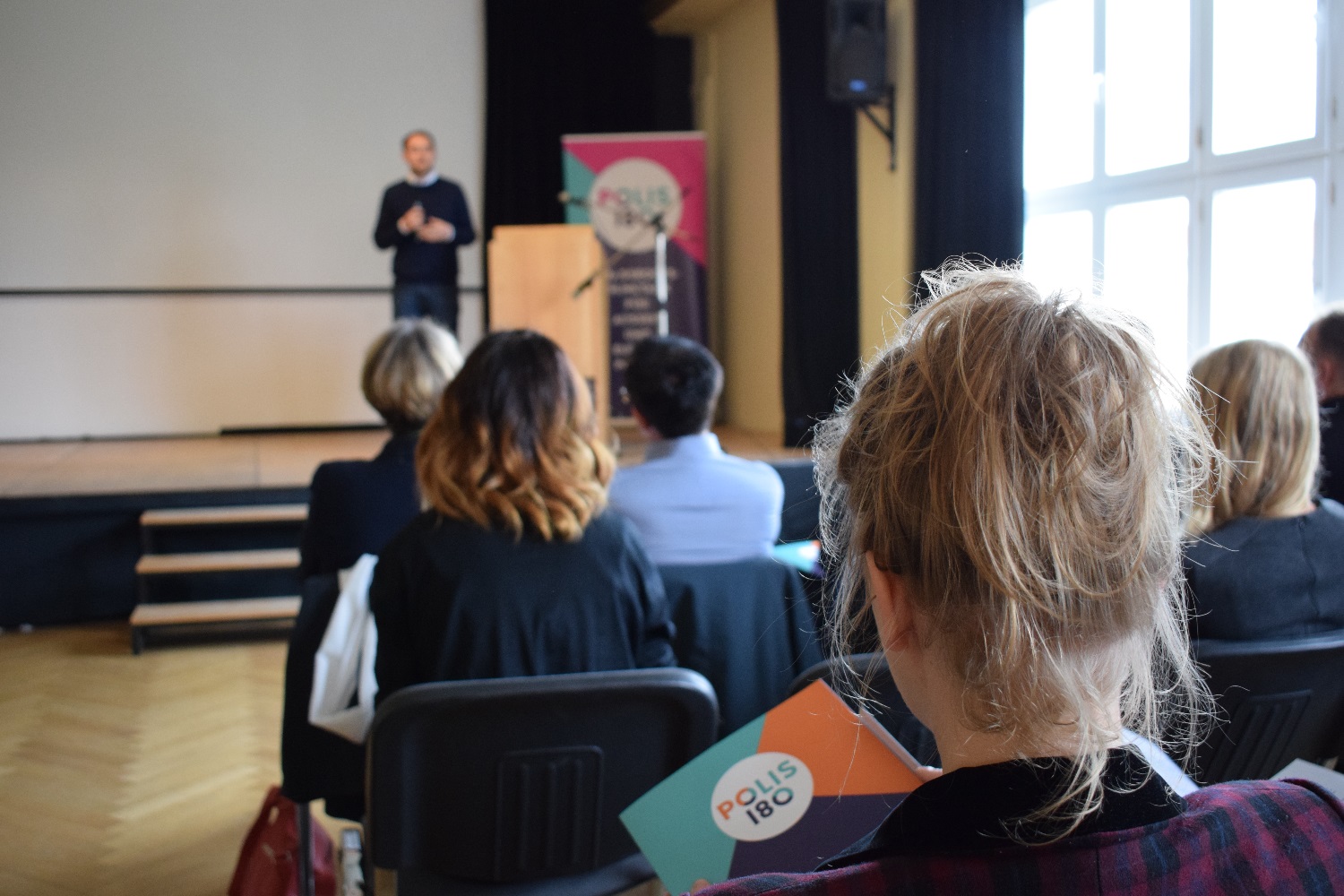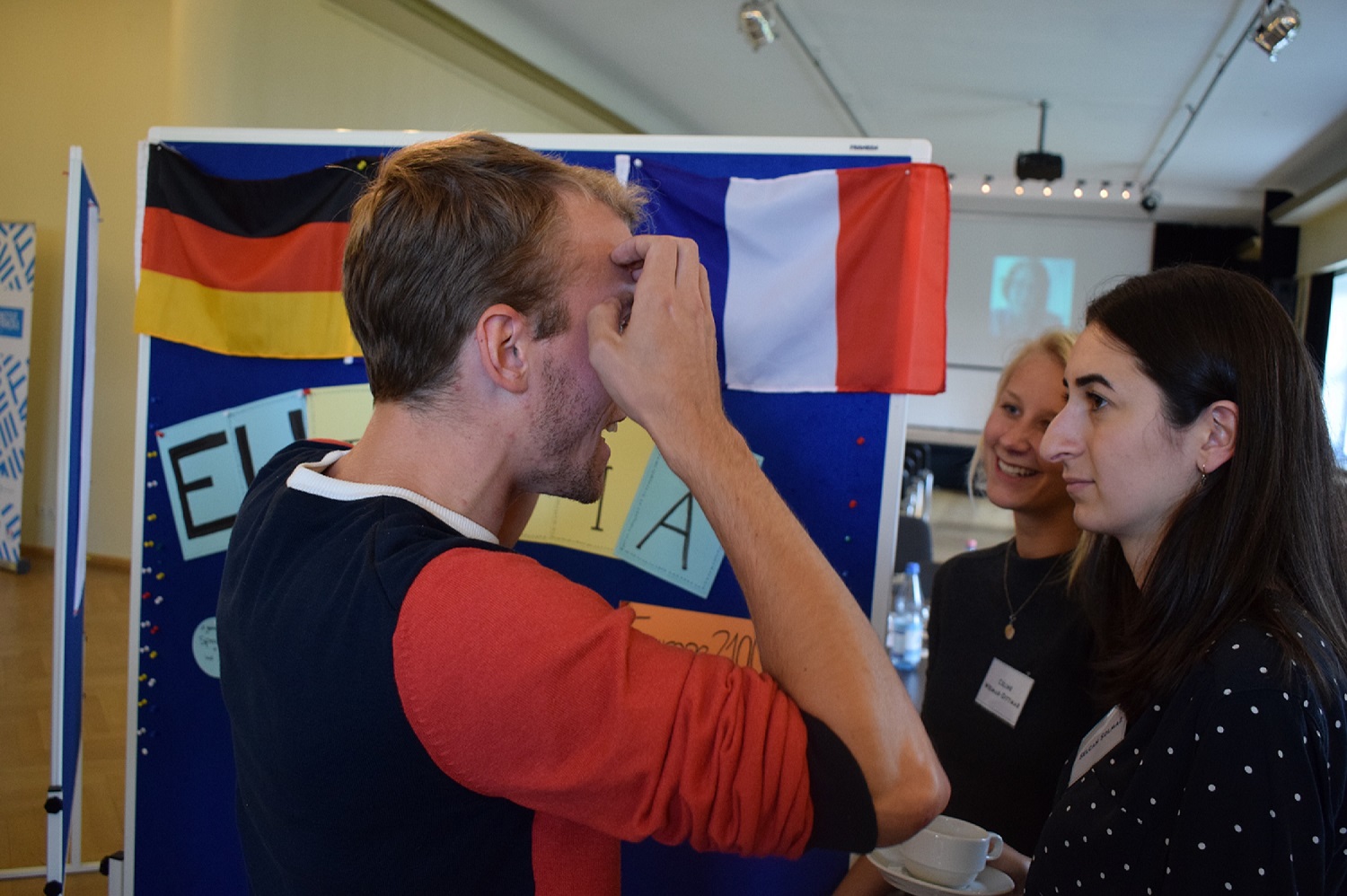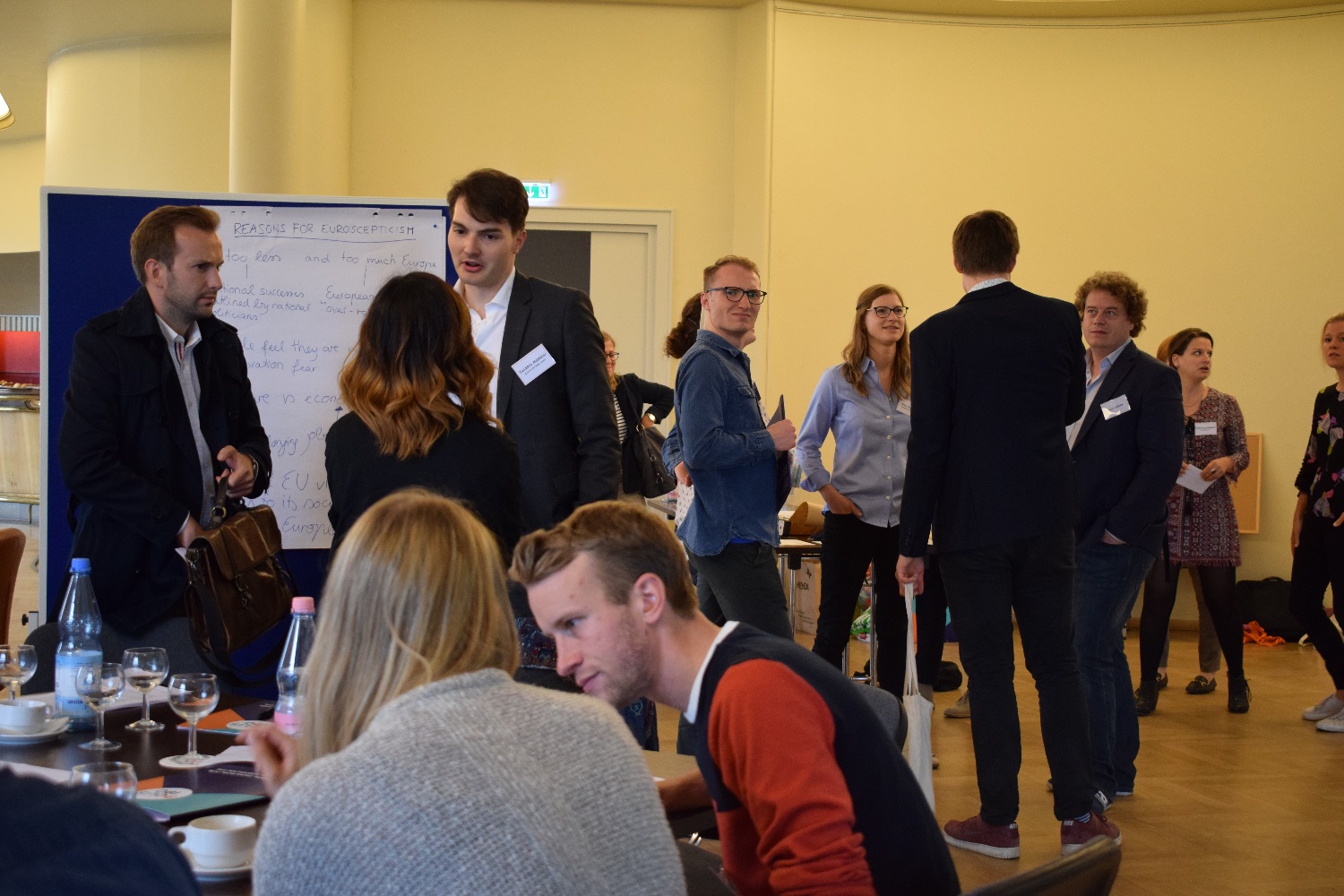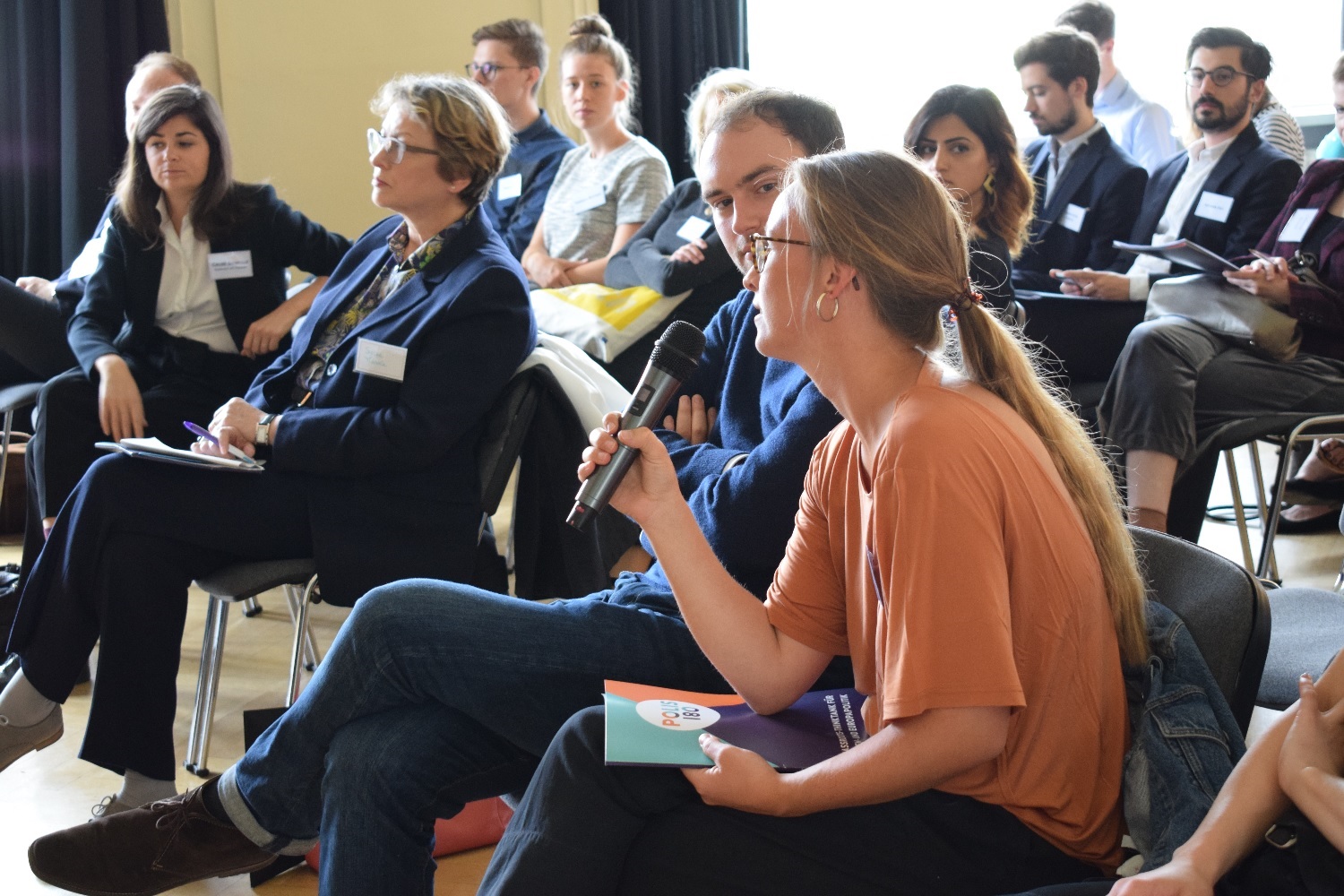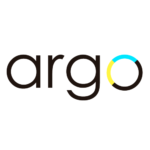„Allez l’Europe! // Vorwärts Europa!“

Impulse für die deutsch-französische Zusammenarbeit
in und für Europa
Spannende Diskussionen, viele, junge, engagierte Menschen, eine spürbar heitere Stimmung: „Allez l’Europe! // Vorwärts Europa!“ hat am Samstag, den 23. Juni im Institut français Berlin und in der Hertie-Stiftung in Frankfurt am Main stattgefunden.
Der Auftakt von “Allez l’Europe! // Vorwärts Europa!” war bereits am 29. Mai in Paris. Zwischen dem deutsch-französischen Ministerrat am 19. Juni 2018 in Meseberg und dem Treffen des Europäischen Rats am 28. und 29 Juni 2018, veranstaltete Polis180 dann am 23. Juni eine Serie von partizipativen Workshops, um Impulse aus der Zivilgesellschaft für die deutsch-französische Zusammenarbeit in und für Europa zusammenzutragen. In fünf parallel stattfindenden, interaktiven Workshops kamen junge, engagierte Menschen aus Europa zusammen, um ihre Ideen für die Zukunft der Europäischen Union einzubringen und mit ExpertInnen zu diskutieren.
Ideas for the Franco-German Effort in and for Europe
With exciting discussions, many committed young people, and a noticeably cheerful atmosphere, „Allez l’Europe! // Forward Europe! „Took place on Saturday, the 23rd of June at the Institut français Berlin and the Hertie Foundation in Frankfurt am Main.
The precursor to „Allez l’Europe! // Forward Europe! “ already took place on the 29th of May in Paris. Between the Franco-German Council of Ministers on the 19th of June 2018 in Meseberg and the meeting of the European Council on the 28th and 29th of June 2018, Polis180 organized a series of participatory workshops on the 23rd of June to gather ideas from civil society for Franco-German Co-operation in and for Europe. In five parallel, interactive workshops, young, committed people from Europe came together to share their ideas for the future of the European Union and discuss these ideas with experts.
KeyNote Speeches
- Sylvie Massière, erste Botschaftsrätin, Französische Botschaft in Deutschland
- Pascal Thibaut, Deutschland Korrespondent, Radio France Internationale
- Prof. Dr. Ulrike Guérot beteiligte sich mit einem exklusiven Videobeitrag zur Zukunft des deutsch-französischen Tandems in Europa.
Er wurde vor dem Zusammentragen der Ergebnisse im Plenum abgespielt.
Im Institut français Berlin eröffnete Sylvie Massière, erste Botschaftsrätin der Französischen Botschaft, die Veranstaltung. In Ihrer Ansprache ermutigte Sie die TeilnehmerInnen, dass die Erneuerung der EU auf die Beiträge von Bürgerinnen und Bürgern, sowie auf zivilgesellschaftliche Akteure und ihre Mitgestaltung angewiesen ist. Partizipationsmöglichkeiten sowie Bürgerdialoge sollen verstärkt dazu dienen, dass ihre Impulse an die EntscheidungsträgerInnen herangetragen werden und die politischen Inhalte und Positionierung der politischen Akteure beeinflussen.
Pascal Thibaut, langjähriger Deutschlandkorrespondent des Radio France Internationale, rahmte das Thema ein und gab dabei seine persönliche, nichtsdestotrotz fachlich fundierte Sicht der Entwicklung des deutsch-französischen Verhältnis in Europa wieder. Das besondere Tandem brauche neue Partner, um die Herausforderungen des heutigen Europas zu bewältigen. Für europäischen Lösungen seien Deutschland und Frankreich aber weiterhin pivotale Akteure zwischen den östlichen und südlichen Teilen der EU.
Seine Rede wurde bereits zum Anlass für einen ersten Austausch mit dem Publikum.
Policy Recommendations und normative Orientierung der EU
Mehr Europa in Europa: demokratische Verfahren und Partizipation
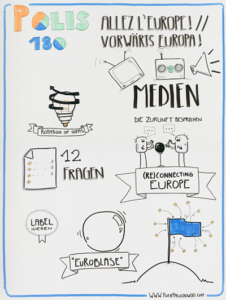
Unter dem Titel „(Re)connecting the EU to its citizens: A discussion about the future of European democracy” diskutierten etwa 20 Teilnehmer*innen mit Chloé Goupille, Vertreterin der Französischen Botschaft in Deutschland zum Thema Bürgerbeteiligung, Valerie Sternberg, Präsidentin der auch Pan-Europäischen Bewegung Volt Deutschland, und Jill Knöper, Beauftragte des Europäischen Parlaments in Berlin zum Thema Öffentliche Kommunikation. Gemeinsam erarbeiteten sie mit den Expertinnen demokratiefördernde Maßnahmen und innovative Partizipationsmöglichkeiten, mit denen die Europäische Union die oft vorgeworfenen Bürgerferne überwinden könne. Diese Distanz solle durch einen europäischen Feiertag, transnationale Listen und Bürgerdialoge (offline und online) entgegengewirkt werden. Alltagsräume wie Supermärkte, Bahnhöfe, Kultur- und Sportstätten sollen als Kontaktpunkt erschlossen werden, um auch bildungsferne und ländliche Teile der Bevölkerung zu erreichen und Errungenschaften der Europäischen Union direkt vor Ort seinen Bürgern ins Gedächtnis zu rufen (z.B. Verbraucherschutzrechte, Infrastruktur, …). Außerdem solle ein europäischer öffentlich-rechtlicher Rundfunk Informationen über die EU und Europa im Allgemeinen verbreiten. Des Weiteren müsse das Initiativmonopol der EU-Kommission beseitigt werden – eine Online-Plattform könne Policy Recommendations aus der Zivilgesellschaft sammeln, von denen jährlich ein ausgewählter Vorschlag umgesetzt wird.
EU-Skepsis bekämpfen: Verstehen, handeln

In Kooperation mit der 1989 Generation Initiative der London School of Economics suchten ca. 20 Teilnehmer*innen “an Alternative to Euroscepticism: Countering Euroscepticism from right and left.” Die Diskussion fokussierte zunächst auf eine Ausdifferenzierung der Positionen, die die EU-Skepsis und ihre Gründe ausmachen. Es sei insofern wichtig, zwischen konstruktiver und destruktiver Euroskepsis zu unterscheiden: eine kritische Einstellung gegenüber der EU könne auch bereichernde Impulse setzen. Durch Populismus erlangen euroskeptische Bewegungen und Parteien Aufmerksamkeit und Zuspruch der Bevölkerung. Begründet sei die Skepsis zum einen sozioökonomisch, zum anderen durch Befürchtungen wie der Verlustangst der eigenen Identität. Die angeregte Diskussion mit Jakov Devčić, Referent Westeuropa bei der Konrad-Adenauer-Stiftung e.V. und Sulin Sardoschau, Co-Präsidentin vom Thinktank Argo legte offen, wie sehr die EU mit öffentlichkeitswirksamen Kampagnen arbeiten müssen, die Ihren Mehrwert für jede Bevölkerungsschicht offenlegen. Valerio Morelli, Politikberater am Auswärtigen Amt lobte auch bestehende Maßnahmen. Der Austausch von Ideen, Gedanken und Erfahrungen müsse jedoch weiter angeregt werden. Mögliche Maßnahmen seien ERASMUS+ für Lehrer, digitale Brieffreundschaften, #FreeInterrail-artige Gutscheine, sowie länderübergreifende Entertainmentangebote (wie eine Netflix-Plattform).
Digitalisierungspolitik: Der Algorithmus im Kern
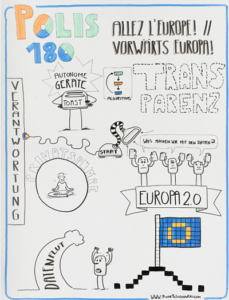
Unser Workshop “EUROPE 2.0: Can digitalisation help tackle common challenges?” gab TeilnehmerInnen in einem ersten Teil die Gelegenheit, sich mit Fachexperten – Thomas Jeannin, Wirtschaftsrat der Französischen Botschaft, Yannick Haan, SPD-Digitalisierungsexperte und Eike Gräf, Policy Advisor am iRightsLab – an einer allgemeine Diskussion zu verschiedenen Themen und Herausforderungen der Digitalisierungspolitik und zu den deutschen und französischen Positionen dazu zu beteiligen. Datenschutz, Breitbandausbau, Urheberrecht (Uploadfilter) bildeten die Kernthemen dieser Diskussion. In einer zweiten Phase fokussierten sich die TeilnehmerInnen auf eine wichtige Herausforderung unserer Zeit: Transparenz. Algorithmen bestimmen heutzutage zunehmend unsere Leben, im Gesundheitsbereich, im Bankbereich, natürlich im digitalen Informationsbereich. Computer sind in Entscheidungsprozesse stark eingebunden. Wie kann im Bereich der Algorithmen Transparenz erreicht werden? Die TeilnehmerInnen setzten sich mit der Herausforderung auseinander, wie kann gegenüber wem/von wem Transparenz geschaffen werden? Die Diskussion zielte darauf ab, ein Kriterienkatalog für die Qualitätskontrolle der Algorithmen in verschiedenen Bereichen unseres Lebens zu erstellen. Wie und wieviele Transparenz benötigt man, gegenüber wem? Dieser Kriterienkatalog solle zunächst ausdifferenziert je nach Tätigkeitsbereich angepasst werden. Wichtig sei allerdings, dass Konsumenten/Patienten effektiv über die Nutzung deren Daten aufgeklärt werden, und zwar proaktiv, auf verständliche und individualisierte Art und Weise. Nicht nur Konsumenten und Patienten sollen aber aufgeklärt werden sondern ebenfalls zuständige, fachlich Kompetenten Stellen, bspw. Sachverständige Räte. Dafür bedürfe es Vereinbarungen auf der EU-Ebene, deren Ausführung nationale Aufgabe sein solle.
Europäische Verteidigungspolitik: Mehr Zusammenarbeit, aber wie?
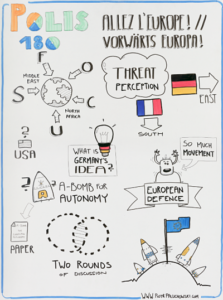
Der Versuch, mit „From PESCO to the European Intervention Initiative: How to support each other’s priorities for European defence?“ eine gemeinsame Position zu erarbeiten, erweist sich als schwierig. Die unterschiedliche Wahrnehmung der Bedrohungen und ein anderes Verständnis von strategischer Kultur stehen dabei im Mittelpunkt. Aufbauend auf der Diskussion am 29. Mai in Paris wurden die ca. 20 Teilnehmer*innen gebeten, sich mit drei Themen auseinanderzusetzen: europäische, gemeinsame Kapazitäten, Einsätze, und Strategie. Denkanstöße bekamen die TeilnehmerInnen von unseren Experten Oberst Lieb vom französischen Heeresverbindungsstab in Deutschland, Sebastian Chávez Wurm von Airbus Defence & Space und Charles Thépaut von der Französischen Botschaft. Mehr Zusammenarbeit zwischen Deutschland, Frankreich und den anderen EU- Mitgliedstaaten und ihren Streitkräften sei wohl die größte Voraussetzung für eine wahrhaft gemeinsame Außen- und Verteidigungspolitik. Der Austausch zu Rüstungsprojekten und aktueller Materialausstattung im Rahmen des Coordinated Annual Review on Defence müsse dafür über das Vorbild des Europäischen Semesters hinausgehen. Mitgliedstaaten sollten darin ihre Kapazitäten wahrheitsgetreu in einem Register zusammenführen und stets aktualisieren. In Abwesenheit einer gemeinsamen Bedrohungsperzeption hätten Deutsche und Franzose Interesse daran, Partnerländer zu suchen, mit denen ein gemeinsames Dokument in Form eines Weißbuchs verfasst werden könnte. Außerdem sollten Deutschland und Frankreich gemeinsame Rüstungsprojekte europäisieren und als Projekte bei der Ständigen Strukturierten Zusammenarbeit / Permanent Structured Cooperation (PESCO) einbringen.
Ein Europäisches Budget? Ja!
In Frankfurt am Main kamen neun junge NachwuchsexpertInnen zusammen, um zu besprechen, welche Bedeutung die gemeinsame Erklärung von Meseburg für die EU-Finanzpolitik in der Eurozone habe. Dr. Eileen Keller vom Deutsch-Französischen Institut Ludwigsburg und Vincent Sternberg, Volt Frankfurt City Team Lead beteiligten sich an der Diskussion zu zwei Leitfragen. Einerseits befassten sie sich mit Vorschlägen zur Erneuerung des Europäischen Stabilisierungsmechanismus in der Eurozone, andererseits mit der Demokratisierung des finanzpolitischen Institutionengefüge. Zu erstens wurden Vorschläge zu einem Stabilitätsmechanismus erarbeitet, welcher auf ein gemeinsames Budget basiere. Das Instrument solle gezielt in den Business Cycle eingreifen und mit Investitionen proaktives Krisenmanagement ermöglichen. Neu im Gegensatz zum ESM wäre vor allem das EU-Budget, welcher durch eine europäischen Unternehmenssteuer finanziert wäre und Flexibilität ggü. den Mitgliedstaaten ermögliche. Zur zweiten Leitfrage ergaben sich klare Vorstellungen unserer 9 Teilnehmer*innen nach mehr Transparenz, Einbindung der Bürger*innen, sowie mehr öffentlichkeitswirksame Aufklärungsarbeit, besonders über die Errungenschaften der Union für die Bürger*innen. Dies sei aber schwierig, solange Bürger*innen der EU sich in den finanzpolitischen Fragen unterrepräsentiert fühlen.
EUtopia – Europa 2100:
Welches Europa überlassen wir unseren Enkeln?
Unseren rund 80 Teilnehmer*innen gaben wir auch die Gelegenheit sich nicht nur mit komplexen, aktuellen Fragen auseinanderzusetzen, sondern auch ihre normativen, langfristigen Vorstellungen für die EU spielerisch zu äußern. Es wurden utopische Wunschvorstellungen eines Europa 2100 gesammelt – ob realistisch oder nicht.
Wovon wir träumen, ist…
- Ein Europa, wo Bewegungsfreiheit eine Selbstverständlichkeit bleibt und wirtschaftlich für alle eine Realität sein kann
- Eine Föderation Europas – deren demokratischen Prinzipien in einer Verfassung verankert sind
- Ein Europa, das gemeinsame soziale Standards und starke Solidaritätsprinzipien garantiert
- Ein Europa, das sich auf Regionen und ihre Vielfalt stützt, die auf lokaler Ebene existiert
- Ein Europa, wo Strukturen der Nationalstaaten auf lokaler und europäischer Ebene verankert werden
- Ein Europa der Mehrsprachigkeit (Esperanto makes a comeback?), das sich auf starke Bildungssysteme für alle stützt und Lehrer*innen Mehrsprachigkeit durch Austauschprogramme näherbringt
- Ein Europa, wo digitale Mittel Bürger*innen ermöglichen, eine sinnvolle Rolle in dem demokratischen Verfahren zu spielen
- Ein Europa, wo wir nachhaltig leben können und unsere Umwelt noch erträglich ist.
- Ein Europa, das Menschen gemeinsame kulturelle Referenzpunkte anbietet, z.B. Europäische Sportmannschaften, ein europäischer “Tatort”, gemeinsame Feiertage, ein gemeinsamer Ausweis, gemeinsame Geschichtsbücher
KeyNote Speeches
- Sylvie Massière, Première Conseillère, French Embassy in Germany
- Pascal Thibaut, Foreign Correspondent in Germany, Radio France Internationale
- Prof. Dr. Ulrike Guérot was present through an exclusive video-contribution which was played before the results were collected.
At the Institut Français, Berlin, Sylvie Massière, first councilor of the French Embassy, opened the event. In her speech, she told participants that EU renewal depends on participation and contribution of both its citizens and civil society actors. Possibilities for participation and citizen dialogs are powerful opportunities to bring the ideas of the people to decisionmakers, both to influence the decisionmaker’s political stance and to call attention to the issues which citizens care about.
Pascal Thibaut, longtime Correspondent of Radio France Internationale, outlined the subject of EU renewal through both his personal and professional view on the development of French-German relations in Europe. This special relationship must find new partners to meet the challenges of today’s Europe. For European solutions, however, Germany and France continue to be pivotal players between the Eastern and Southern parts of the EU.
His speech initiated an exchange with the audience.
Policy Recommendations and General Orientation of the EU
More Europe in Europe: Democratic Processes and Participation
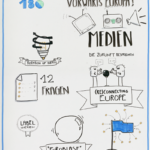
In the workshop titled “ (Re) connecting the EU to its citizens: A discussion about the future of European democracy“around 25 participants discussed citizen participation in the EU along with Chloé Goupille , representative of the French Embassy in Germany, Valerie Sternberg , president of the Pan-European Movement Volt Germany , and Jill Knöper, Commissioner for Public Communication in Berlin. Together, they worked with the experts to develop ways that the EU can overcome the political alienation felt by its citizens, including democracy-promoting measures and innovative opportunities for citizen participation. This distance should be counteracted by a European holiday, transnational lists, and citizen dialogues (both offline and online). Everyday areas such as supermarkets, train stations, cultural and sport facilities are to be developed as contact points in order to reach educational and rural parts of the population and to recall achievements of the European Union directly on the spot to its citizens (eg consumer protection rights, infrastructure, …). In addition, a European public service broadcaster should disseminate information about the EU and Europe in general. Furthermore, the initiative monopoly of the EU Commission must be eliminated – an online platform could collect policy recommendations from civil society, from which a selected proposal is implemented annually.
Fighting Euroscepticism: Understanding and Acting

In cooperation with the 1989 Generation Initiative of the London School of Economics, we sought an „Alternative to Euroscepticism: Countering Euroscepticism from Right and Left.“ The discussion initially focused on an examination of the range of EU skepticism and why EU sceptics believe what they do. A very important distinction was that of constructive and destructive skepticism, as a critical attitude towards the EU could also provide ideas to improve it. Through populism, Eurosceptic movements and parties gain attention and popularity. The reasons for skepticism are on the one hand socio-economic and on the other hand due to fear, such as the fear of loss of one’s own identity. The lively discussion with Jakov Devčić, Speaker Western Europe at the Konrad-Adenauer-Stiftung eV and Sulin Sardoschau , co-president of the Thinkank Argo, revealed how much the EU needs to work with high-profile campaigns to show its citizens concrete benefits of the EU at an individual level. Valerio Morelli , political advisor at the Federal Foreign Office, also praised existing measures. However, the exchange of ideas, thoughts and experiences must be further stimulated. Possible measures include ERASMUS + for teachers, digital penpals, # FreeInterrail-type vouchers, and transnational entertainment services (such as a Netflix platform).
Digitalisation Policy: the Algorithm at its Core
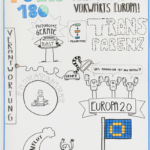
In the first part of the workshop „EUROPE 2.0: Can digitization help tackle common challenges?“ participants got the opportunity to meet with experts – Thomas Jeannin , Economic Council of the French Embassy, Yannick Haan , SPD digitization expert, and Eike Gräf , Policy Advisor at iRightsLab– to participate in a general discussion about various topics and challenges of digitization policy as well as current German and French positions. Data protection, broadband expansion, and copyright (upload filter) formed the core topics of this discussion. In the second phase, participants focused on an important challenge of our time: transparency. Today, algorithms increasingly determine our lives- in the health sector, in the banking sector, and of course in the digital information sector. Computers are highly involved in decision-making processes. How can there be transparency in the creation of algorithms? The participants dealt with the challenge: how can we create transparency for whom / by whom? The discussion aimed to create a catalog of criteria for the quality control of algorithms in different areas of our lives. How and how much transparency do you need versus whom? This list of criteria should first be differentiated depending on the field of activity. However, it is important that consumers / patients are effectively informed about the use of their data, in a proactive, understandable and individualized manner. Not only consumers and patients should be informed, but also competent, technically competent bodies, such as. This requires agreements at the EU level, whose implementation should be a national task. to whom? This list of criteria should first be differentiated depending on the field of activity. However, it is important that consumers / patients are effectively informed about the use of their data in a proactive, understandable, and individualized manner. Not only consumers and patients should be informed, but also competent, technically competent bodies, such as. This requires agreements at the EU level, whose implementation should be a national task. to whom? This list of criteria should first be differentiated depending on the field of activity. However, it is important that consumers / patients are effectively informed about the use of their data, in a proactive, understandable and individualized manner. Not only consumers and patients should be informed, but also competent, technically competent bodies, such as. This requires agreements at the EU level, whose implementation should be a national task. Not only consumers and patients should be informed, but also competent, technically competent bodies, such as. This requires agreements at the EU level, whose implementation should be a national task. Not only consumers and patients should be informed, but also competent, technically competent bodies, etc.. This requires agreements at the EU level, whose implementation should be a national task.
European Defense Policy: More Cooperation, but How?
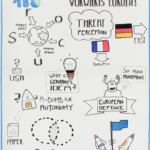
The attempt to establish a common position with “From PESCO to the European Intervention Initiative: How to support each other’s priorities for European defense?” Is proving difficult. The different perception of threats and a different understandings of strategic culture are the focus of attention. Building on the discussion on the 29th of May in Paris, participants were asked to tackle three issues: European, shared capacities, operations, and strategy. The participants received food for thought from our experts Colonel Lieb from the French Army Joint Staff in Germany, Sebastian Chávez Wurm from Airbus Defense & Space and Charles Thépaut from the French Embassy. More co-operation between Germany, France and the other EU Member States and their armed forces is arguably the greatest prerequisite for a truly common foreign and defense policy. The exchange on defense projects and current material equipment within the framework of the Coordinated Annual Review on Defense must therefore go beyond the model of the European Semester. Member States should truthfully consolidate their capacities in a register and update them constantly. In the absence of a common threat perception, the Germans and the French would be interested in seeking partner countries to draft a common document in the form of a White Paper.
A European Budget? Yes!
In Frankfurt am Main, nine junior experts met to discuss the significance of the Meseburg Joint Declaration for EU fiscal policy in the Eurozone. Dr. Eileen Keller of the German-French Institute Ludwigsburg and Vincent Sternberg , VoltFrankfurt City Team Lead took part in the discussion on two key questions. On the one hand, they dealt with proposals for the renewal of the European stabilization mechanism in the EU and, on the other hand, the democratization of the institutional structure of financial institutions. Firstly, they developed proposals for a stability mechanism based on a common budget. The instrument should specifically intervene in the business cycle and enable investments proactive crisis management. New in contrast to the ESM would be above all the EU budget, which would be financed by a European corporate tax and flexibility. Member States. The second key question was clear ideas of our participants for more transparency, involvement of the citizens, as well as more public relations education, especially on the achievements of the Union for the citizens. However, this is difficult as long as citizens of the EU feel underrepresented in fiscal matters.
EUtopia – Europe 2100:
What Europe are we Leaving for our Grandchildren?
We not only gave our approximately 80 participants the opportunity to deal with complex, topical issues, but also to playfully express their normative, long-term ideas for the EU. We collected wishful thoughts for a Utopian future of Europe 2100- be them realistic or not.
What our participants seem to be dealing with or dreaming about is …
- A Europe where freedom of movement is guaranteed and can economically be a reality for all people
- A federation of Europe – whose democratic principles are enshrined in a constitution
- A Europe that guarantees common social standards and strong solidarity principles
- A Europe based on regions and their diversity existing at local level
- A Europe where structures of nation states are anchored at local and European level
- A Europe of multilingualism (Esperanto makes a comeback?), based on a strong education for all, and bringing teachers closer to multilingualism through exchange programs
- A Europe where digital means allow citizens to play a meaningful role in the democratic process
- A Europe where the air is clean, even in cities
- A Europe that offers people common cultural reference points, such as European sports teams, a European „crime scene“, common holidays, a joint passport, common history books
Eine Publikation: Anregung für weiteren Austausch
Der Berliner Illustrator Piotr Paluchowski hat die Quintessenz der Workshops mit Hilfe des Graphic Recordings zusammenfassen und anschaulich festhalten – eine optisch ansprechende Methode der Ergebnissicherung.
Es soll eine Publikation von Polis180 mit seinen PartnerInnen veröffentlicht und im Rahmen einer öffentlichen Veranstaltung präsentiert werden, um unsere gemeinsam erarbeiteten Handlungsempfehlungen EntscheidungsträgerInnen näher bringen zu können.
A Publication: Stimulation for Further Exchange
The Berlin illustrator Piotr Paluchowski has vividly captured and summarized these workshops through his graphic recordings.
A publication of Polis180 with its partners will be published and presented as part of a public event in order to bring our jointly-developed recommendations for action closer to decision-makers.
PROJECT TEAM
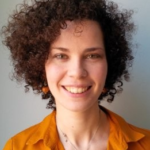
Claire Saillour
Project manager
A long stay in the US made clear to me the importance of European cohesion. Therefore, I lead the project „Allez l’Europe! // Forward Europe! “ to help shape the future of the EU. I am glad for the success of the workshops and all of the suggestions which were contributed.
Contact: claire.saillour@polis180.org or +49 176 30191230

Aaron Otto Langguth
Intern
As a born Berliner, I grew up in peace thanks to reunification. Therefore, I am at the forefront through my studies and my internship with Polis180 for the further development of our Europe.
Contact: aaron.langguth@polis180.org
In Kooperation mit:
Diese Veranstaltung wurde unterstützt von:
